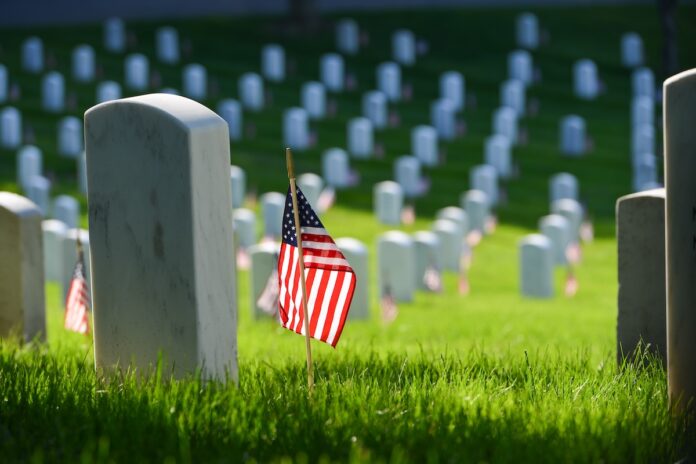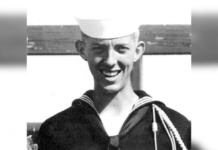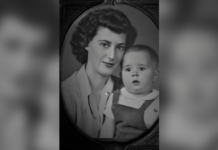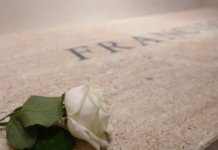
The war in Vietnam was raging by the time we graduated from high school in 1965. Senior boys had two choices: college or the draft.
The controversies surrounding the Vietnam War made this time difficult. Protest, anger, death, and politics mixed in a boiling pot, spilling over into divisiveness and apathy.
Our young men came home to no fanfare or parades. They returned home, scarred both mentally and physically, to a world that forgot to say “thank you” to those who wanted only to protect and serve.
In 1965, I went to college, and my brother, John Walker, who had been in the Navy since 1962, went into the dark waters of North Vietnam, where he remained for one year.
During John’s service in Vietnam, I received a Vietnamese doll as a gift from him. These dolls became a symbol of the war to many. She came to me in a traditional dress with a straw hat that hung by a strap down her back. I treasured her. She moved with me wherever life took me in the following years, usually winding up safely tucked in a dresser drawer.
I wore a POW/MIA bracelet for Major Robert Dyczkowski, a fellow warrior during the war. Many people wore these metal bands to honor those who had fallen. After a small donation, the names were randomly selected and then mailed nationwide. The bracelets simply bore the soldier’s name, rank, and the date they became “Missing in Action.”
When your soldier was set free or his remains were found, you were to break the metal. For me, it symbolized that the soldier was no longer bound by shackles or life. They were found either on earth or in heaven.
My bracelet is still intact. Major Robert Dyczkowski never returned nor was ever found.
The bracelet stayed protected in the drawer with my doll for over forty years. Often, I wondered about the Major and hoped that someday, those in the military who kept searching for the soldiers lost in Nam would find this Air Force pilot and bring him home.
When I married in 2005, my husband encouraged me to hire someone to help me clean our house. After a search, I found Violet. Violet came to the US from Poland. She speaks perfect English, and I have loved her as part of our family for years.
One day, before Violet arrived, my husband and I decided to create a wall of art in our dining room.

Most of the paintings were his and previously hung on various walls throughout our home. We loved the new art collection, but there was a gap that needed filling. A narrow, tall space required a “piece.”
I ran upstairs and got the doll and the POW bracelet.
“David, why can’t we put these together in a shadowbox and display them here?” I said, pointing to the unique space.
“I always wanted to take these out of the drawer, and now we can showcase them!”
After receiving the shadowbox from the art framer, I immediately hung it. It was perfect! The doll with the POW/MIA metal bracelet around her waist was now in a place of honor.
Violet came the following Thursday.
While I prepared for work, she was dusting in the dining room and admiring the gallery.
“Lynn, Lynn!!!” she shouted.
I ran to her, thinking she had fallen. However, she held the feather duster in the air as if frozen while staring at the shadowbox.
She could hardly speak, so I explained what the bracelet meant.
“No, no, you are not going to believe this!” She continued, “That is Robert Dyczkowski, my husband’s great-uncle! He was found in 2001 and brought home. He was promoted posthumously to Colonel and is one of the last Americans from Vietnam to be buried in Arlington.”
We both stared at the doll, who mysteriously forged a path from Poland to America, Vietnam to Georgia to a dining room. Tears fell down my cheeks, and I felt as if two fallen soldiers were standing with us, looking at two women utterly shocked at the curious, mystifying intersections where lives meet and why. Suddenly, it seemed as if the war was finally over. Two brave soldiers were at peace.
Memories of war and those who served should never be tucked away in a drawer. On this Memorial Day, we need to remember that old soldiers never die, nor do they fade away. They should always live on in the hearts and minds of those they served and be forever honored.
_____
This article was previously published in Guidepost Magazine’s ‘Mysterious Ways.’ Lynn Walker Gendusa is a Georgia author and columnist. Her latest book, “Southern Comfort: Stories of Family, Friendship, Fiery Trials, and Faith,” is available on Amazon. She can be reached at www.lynngendusa.com.
For more of Lynn’s inspirational stories, click here.






